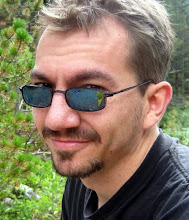While the story has all but disappeared from most media outlets, the investigation into the potentially politically motivated firing of nine U.S. Attorneys continues.
Before the court of public opinion, White House spokespeople have long maintained President Bush had no involvement in the firing of nine U.S. Attorneys, the central decision that mushroomed into one of the biggest scandals in eight years of the Bush administration.
"[T]here is no indication that the President knew about any of the ongoing discussions [about firing U.S. attorneys] over the two years, nor did he see a list or a plan before it was carried out," White House spokeswoman Dana Perino told reporters in March 2007.
In federal court, however, the administration's lawyers have been more ambiguous.
"The record does reflect at this stage that the president was not involved in decisions about who would be asked to resign from the department," Justice Department lawyer Carl Nichols carefully argued before a federal judge in June. But "the record does not reflect that the President had no future involvement" in the scandal, he noted.
Just how much of a role the president played in the firings and its aftermath remains unclear. But in trying to prevent top White House officials from testifying or turning over documents to Congress, the Bush administration "is very consciously trying to walk a very fine tightrope," explained Stephen Vladeck, a law professor at American University in Washington, D.C.
On the one hand, experts say, the White House finds it politically necessary to make clear statements insulating Bush from the scandal. But in court, "If they said [Bush] wasn't involved at all they would undermine their case for executive privilege," Vladeck said.
The resulting argument, he said, is "a lawyer who's trying to be very obtuse."
Still, the administration lawyers' fancy footwork hints that the president's involvement could be broader than widely known. "They are not expressly saying it but it is an implicaton because you can't mislead the court," said Charles Tiefer, former House general counsel now a law professor at the University of Baltimore.
The sad thing is that by the time anyone figures out what happened, the people who need to be punished will all be out of office, sitting around at home, drinking beer, and laughing at what they got away with. I wish the Democrats were pursuing things like this a little more seriously instead of being more concerned with winning their next election (not the Presidential contest, but their own individual reelection). That's politics, though, I suppose.




No comments:
Post a Comment